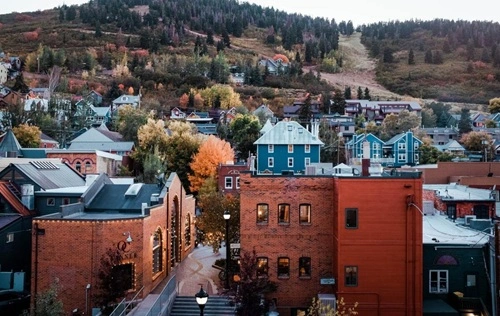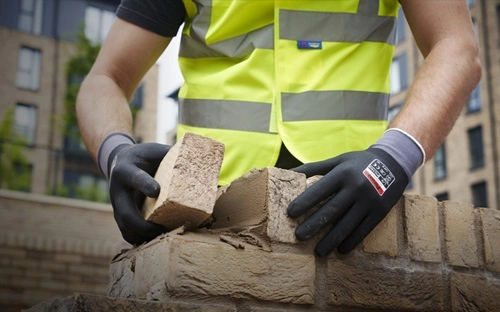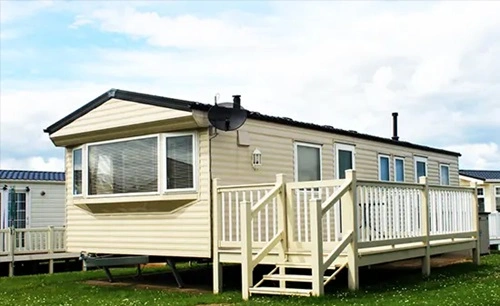Utah has been steadily gaining attention over the past decade as one of the most desirable places to live in the American West. With its jaw-dropping natural landscapes, strong economy, and family-friendly environment, it’s easy to see why people are flocking to the Beehive State. But, like every place, Utah has its upsides and downsides. Whether you’re considering a move to Salt Lake City, Provo, St. George, or one of Utah’s charming small towns, here’s an in-depth look at the pros and cons of living in Utah.
Pros of Living in Utah

1. Breathtaking Natural Scenery
Utah is home to some of the most stunning natural landscapes in the United States. The state boasts five national parks—Arches, Zion, Bryce Canyon, Capitol Reef, and Canyonlands—often referred to as the “Mighty 5.” Whether you’re into hiking, skiing, rock climbing, or photography, outdoor adventures are endless. The Wasatch Range offers world-class skiing, and the red rock desert in the south feels like another planet.
2. Strong Economy and Low Unemployment
Utah consistently ranks as one of the top states for economic growth. The job market is robust, with key industries including technology, healthcare, education, and tourism. The “Silicon Slopes” area around Salt Lake City has become a booming tech hub, attracting startups and major companies alike. The state’s unemployment rate is typically lower than the national average, and its business-friendly policies help foster innovation and entrepreneurship.
3. Low Crime Rates
Utah is one of the safest states in the country, particularly in its suburban and rural areas. Property and violent crime rates tend to be below the national average, making it a great option for families and individuals looking for peace of mind.
4. High Quality of Life
Utah often ranks high in quality of life metrics due to its clean cities, access to outdoor recreation, family-friendly culture, and focus on wellness. Many residents enjoy a healthy, active lifestyle supported by the state’s emphasis on community and clean living.
5. Excellent Outdoor Recreation Year-Round
No matter the season, Utah offers outdoor activities for everyone. In the winter, ski resorts like Park City and Snowbird draw visitors from around the world. Summer brings opportunities for mountain biking, boating, camping, and rock climbing. Few states offer such a wide range of outdoor recreation within just a few hours’ drive.
6. Family-Oriented Culture
Utah has a strong family-centric culture. Schools, neighborhoods, and community programs are generally designed with families in mind. If you’re looking for a place to raise kids, the emphasis on family values and community involvement can be a big plus.
Cons of Living in Utah
1. High Cost of Housing in Popular Areas
While some parts of Utah remain affordable, housing prices—especially in and around Salt Lake City and Park City—have skyrocketed in recent years. The influx of new residents combined with limited housing supply has created a highly competitive real estate market. Rent and homeownership in urban areas can be expensive, especially for first-time buyers.
2. Conservative Social Environment
Utah is known for its conservative politics and strong influence of the Church of Jesus Christ of Latter-day Saints (LDS Church). While this fosters a tight-knit community and low crime rates, some newcomers may feel out of place if they don’t align with prevailing social or religious norms. In rural and suburban areas, diversity of belief and culture may be more limited compared to larger, more progressive cities.
3. Limited Nightlife and Alcohol Restrictions
Utah’s nightlife scene is modest compared to places like Las Vegas or New York. Alcohol laws are more restrictive than in most other states, with lower alcohol content in some beers, limited availability of liquor stores, and regulations on how drinks are served. If an active bar or club scene is important to you, Utah might feel a little tame.
4. Air Quality Issues
Salt Lake City and surrounding areas occasionally suffer from poor air quality, especially during winter inversions and summer wildfires. Pollution can get trapped in mountain valleys, leading to hazy skies and health concerns. It’s something to consider if you have respiratory issues or young children.
5. Public Transportation Limitations
While Salt Lake City has a light rail system (TRAX) and public buses, most of Utah is car-dependent. In smaller towns and rural areas, public transportation options are minimal. If you don’t drive, getting around can be a challenge outside major metro areas.
6. Rapid Population Growth and Development
Utah’s booming economy and natural beauty have attracted a lot of new residents, leading to rapid population growth. This growth is putting a strain on infrastructure, roads, and housing availability. Traffic congestion is becoming a problem in some areas, and the state is working to balance development with preservation of its natural resources.
Conclusion: Is Utah Right for You?
Utah is a state of contrasts. It’s both a tech-forward business hub and a land of timeless natural beauty. It’s family-oriented and community-focused, yet increasingly attracting young professionals and digital nomads. For many, it offers an ideal mix of outdoor adventure, economic opportunity, and safe, family-friendly living.
However, the state’s religious and political conservatism, rising housing costs, and air quality concerns may be deal-breakers for some. If you value diversity, a robust nightlife, or liberal-leaning culture, you may find better fits elsewhere.
Still, for outdoor enthusiasts, families, and career-minded individuals looking for a high quality of life, Utah stands out as a compelling and rewarding place to call home.
Pro Tip: Before making the move, spend time exploring different regions—Northern Utah has a very different vibe than the red-rock South. And if possible, visit in both winter and summer to experience the full range of what Utah has to offer.



